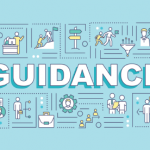They call the behavior of at least some of the physicians identified by Ross et al. “unprofessional and demeaning to the medical profession and to scientific research.” They then enunciate a series of proposals to rescue the integrity of clinical research and medical education, clarify the roles of medical writers, and penalize authors whose disclosures are incomplete. An especially interesting position of Drs. DeAngelis and Fontanarosa is that pharmaceutical companies should be prohibited from providing support for medical education, considering that the April 16th issue of JAMA contains several pages of drug ads, including the back cover of the journal. Notwithstanding this one paradox, their message is clear: Something is rotten in the state of medicine.
These publications in JAMA have attracted extensive media coverage. The New York Times headlined its article on this subject, “Merck wrote drug studies for doctors,” and quoted Dr. Ross as saying that “it almost calls into question all legitimate research that’s been conducted by the pharmaceutical industry with the academic physician.” Another article published on ChicagoTribune.com was entitled, “Drugs are hyped by ghostwriters, not sound science.” And now Senator Chuck Grassley (R-Iowa) has launched an investigation.
Casting a broad net that traps the innocent with the guilty can reasonably be viewed an act of negligence, even recklessness that—just like ghostwriting—has no place in a medical journal.
When Is a Ghost Not Really a Ghost?
The article by Dr. Ross and colleagues deserves careful examination. It does clearly document examples of ghostwriting and inappropriate ordering of authorship, examples that I was able to confirm upon searching the public database of documents that Ross et al. analyzed. However, when I probed this database with the names of some of the ACR members whose articles were implicated, I found disturbing discrepancies between the available data and the conclusions of the JAMA article. For example, regarding a review article on COX-2 inhibitors authored by a single ACR member, the only document in the database that contains this author’s name is a grant request (from someone unrelated) that cites an article by this author as a reference. And this grant request had been submitted to a different pharmaceutical company a decade ago, and had nothing to do with rofecoxib or any other anti-inflammatory drug. Why this document was even in the database is not at all obvious. And why this ACR member’s review article was listed by Ross et al. in a table with the daunting title, “Published Financial Disclosures among Articles Describing Clinical Trial Results or Scientific Reviews (Including Journal Supplements) Discussed Internally within Merck Prior to Publication That Proposed an External, Academically Affiliated Investigator as an Author,” is equally not apparent.

